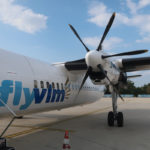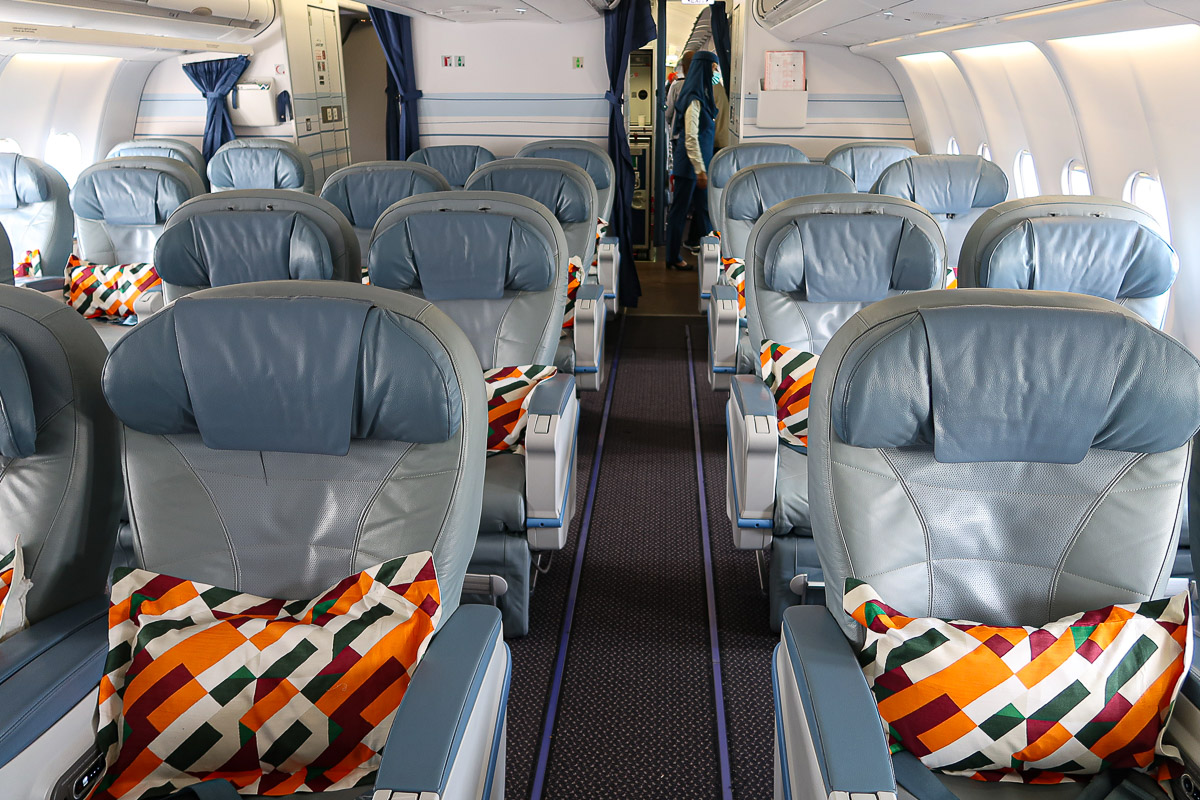With Miles & More, Lufthansa Group’s widely used loyality programme, introducing the concept of Mileage Pooling to their program just about a week ago, travel blogs were flooded with different articles on mileage pooling. As these articles are typically in mileage-optimizing or very frequent-travelling orientated websites, I felt that it is sensible to give a brief overview on mileage pooling and whether it might be suitable for you.
What is Mileage Pooling?
The idea behind mileage pooling is quite simple: typically, at loyalty programs, you are collecting in individual accounts. Mileage Pooling allows you to share your accounts (which is typically just limited to award miles), which means that both members are able to access the total of their award miles, which are summed up in a pool. The mileage pool still consists of two separate accounts, so that each member is collecting award miles individually. This especially eases the split of miles in case you stop the pool.
The way to determine how spent miles are split over the pool account differs from system to system. Likely, the most common approach is that you first spent all the miles in your account before accessing the pool. Some loyalty programs may also use a somewhat-proportional approach.
Is Mileage Pooling innovative?
Absolutely not! The idea is not that new. I am in a “Mileage Pool” with my wife at British Airways Executive Club, for example. The pooling concept is called “household account” there (see below). There are a couple of other loyality programs which already offer pooling: in Star Alliance, for example, Aegean’s Miles+Bonus introduced the Together account, Etihad Guest calls their pooling Family Membership. At oneworld, British Airways Executive Club is allowing for pools as well. JAL / Japanese Airlines even has a special JAL Family Club.
How does Mileage Pooling work in practice?
The loyality program which is currently in focus most is Miles & More, which is not just convering Lufthansa Group (incl. Eurowings), but also LOT, Crotian and Adria Airways. Of course, you may collect award and status miles on other Star Alliance carriers or Miles & More partners well. The pooling here has very few limitations:
- The pool may consist of one or two adults and up to five children.
- The members of a pool do not need to be related or live in the same household.
- If you leave the pool, you will be blocked for pooling inb general for six months.
Especially the second point is very interesting, because it may allow you to select your pooling group quite flexibly. It also gives a very reasonable size of the group – however, there are just two adults allowed, which may be the real miles collector in a mileage pool. Miles & More gives a nice overview on their website to that topic:

Here are some differences to some of the other pooling concepts I mentioned above:
- At Miles+Bonus, the pool may just have six people. Furthermore, there is a pool leading member, who needs to have at lease silver status level. Furthermore, the pool members need to have clear roles like Father, so that you are not that flexible in composing a pool.
- British Airways Excecutive Club does not require any relationship, but you need to share the same permanent address.
- JAL also requires a certain level of relationship to allow to be part of the same Family Club membership.
- This is very similar at Etihad Guest. However, they allow to have one household help in your account as well. There may be up to eight persons with one being 21 years or older.
I feel it is very interesting how cultural aspects may influence the pooling concept. There is not too much of a difference – the Miles & More limitation to two adults may restrict you slightly.
What does Mileage Pooling not do?
There are two key things which mileage pooling does not do: the first one (and to me: the key one) is that it is not pooling status miles. This may be obvious to most of you, but I feel it is important to emphasize. You only pool your award miles – none of them will get a more fancy-colored membership card just because he or she is pooling. You still have two separate accounts – and they are as separate as before pooling in regards of your status.
Secondly, a pool does not protect the miles from expiring. In general, Miles & More miles expire 36 months after you earned them, other program require you regular (i.e. once a year) mileage transactions (like earning more miles) to keep your savings active. Very often, you may also protect your miles by a certain status level or by applying for a credit card. All these mechanism do not change just because you are part of a mileage pool. If your partner is Miles & More Senator and you are an no-status member, a pool will not protect your award miles. However, as you might be able to spend your miles quicker, see above, you might rather be able to use them in a sensible way. Within pools, you typically also do not automatically inherit miles from members, who have passed away.
One topic I cannot finally answer (as it highly depends on your booking profile) is whether mileage pooling at Miles & More is potentially compensating the members for the adoption of the award mile schedule to a revenue-based system. I rather feel that overall, it is still harder (even for a single person’s award flight) to collect the mile to go for your “free” flight.
Any cons?
I initially wanted to call this chapter “disadvantages”, but maybe it would have become rather short then. The only disadvantage I see is that it is a bit of a safety issue. One may access you mileage account by accessing another person’s data, including that person himself/herself. You should have a certain level of trust in that person and in her attitude about data security, using strong passwords and all these things, which may significantly lower the risk that one of the connected accounts is hacked. Of course you see all the times how much miles other parties in your pool collect. I would not care, but other people may be more picky here.
Shall I do Mileage Pooling?
Apart from the protection issue on your miles I mentioned above, I do not see any disadvantage in doing mileage pooling. Especially for award bookings which require significant miles, for example companion bookings, it may even save miles just because you can do your booking in one instead of having two separate bookings. Especially earning some miles because you take your kids to a higher-class booking for holidays twice a year and similar scenarios feel to be very attractive. On the other hand, being limited to two adults at Miles & More does not allow do have that much of a boost of your mileage availability. Other programs seem to be much more attractive there.
Shall I change my Loyality Program due for that?
Very hard to say that – but in general I feel that the answer is no. If you, however, decide to enroll to a new program (either because you fancy another alliance or because you changed your flyer profile significantly in another way), the existance of mileage pooling may be a strong argument. I expect that in most pools, there will be one strong contributor, so that his/her profile will dominate the selection of the right program.
Feature picture designed by Freepik
Mileage pooling illustration by Miles and More
Aviation on Flyctory.com
Here are all postings about Airports & Airlines:

In late May 2025, I added another smaller US airport to my flight log. Typically, I visit these places due ...

In late June 2025, I had my 210th airport experience. Going to Brighton in Southern England, the early morning KLM ...

Two trips to the United States, including my 6 US States and Nashville trip and a short hop to see ...

I am a transport and aviation nerd. Thus, it might not be too surprising that one of the key motivations ...

The name Centurion Lounge is just located in comparably small letters at the side of the staircase - the credit ...

Returning from the Swedish Floorball Finals in April 2025, I chose a Eurowings flight from Stockholm Arlanda Airport (ARN). While ...

Due to my new job, I did not travel that much and worked quite a lot from home instead. However, ...

It's already quite a while ago since I shared my view on Dubrovnik Airport (DBV) with you. However, I did ...

I had the idea to this post when I sat in the American Airlines Admirals Club at Pittsburgh Airport (PIT), ...

On my recent twelve Air France and KLM mileage run in January 2025, I also had one night in Malaga ...

Having a Thursday evening flight with British Airways gave me a comparably rare opportunity for a lounge review at my ...

After I already took you on a Visitor Tour through Munich Airport (MUC) in a previous post, here is another ...

In October 2024, I flew from Jakarta (CGK) Terminal 3 back to Abu Dhabi (AUH) via Colombo (CMB). The SriLankan ...

22 - a repdigit and thus a small anniversary in my Food I Had Onboard series. I have to admit that some ...

During my Pittsburgh Penguins trip in February 2025, I had a Contour Airlines flights, based on the Essential Air Service ...

After I shared my loyalty portfolio thoughts in March 2024 with you, it is time for an update. Especially the ...

Flying Eurowings in the A320neo from Cologne/Bonn (CGN) to Dubai World Central (DWC) did not only give me my first-ever ...

The Essential Air Service program, a state-funded scheme to subsidize aviation in more remote and less developed areas, already brought ...

With my recent mileage run and the trip to the World Floorball Championship Qualifications in Italy, I had quite a ...

I have been at the Schengen Austrian Airlines Senator Lounge in Vienna (VIE) so many times the last years. However, ...

In addition to the non-Schengen services at Terminal 1, Terminal 2 of Prague Airport (PRG) offers two lounge options. I ...

Dubai World Central (DWC), also Dubai Al Maktoum International, is Dubai's future hub in the making, according to the official ...

While quite a lot of traveling is ahead of me during the next weeks, November and December 2024 was rather ...

In the frequent traveler community, especially in and around Germany, the middle distance Eurowings flights gained quite some popularity. Flights ...

Flying Qatar Airways Business Class from Belgrade (BEG) to Doha (DOH) gave me a rather rare experience. While I already ...

The lounge Josh Cahill made famous - the Privilege Lounge at Tunis Airport (TUN) once made a devastating YouTube video ...

Being on some sort of Lufthansa farewell tour after I decided not to prolong my Senator status gave me an ...

Spending some time in and around Munich Airport (MUC), I also took the opportunity to have their Airport-Live-Tour, the basic bus tour ...

After I already introduced you to my good Saudia Boeing B787 Dreamliner experience, I still owe you the second part ...

Exactly eight years ago, I flew SAS Scandinavian flight SK 626 from Dusseldorf (DUS) to Copenhagen (CPH). Not a really ...

Four flights with SriLankan Airlines - the national aviation provider of the Asian state was the backbone of my travel ...

While my 18th edition of the Food I Had Onboard just came with a limited number of trips rather widely ...

My October 2024 trip, featuring multiple flights and airlines from Germany to Jakarta, came with one major highlight. Qatar Airways ...

In February 2024, I had my first flights with Saudia Arabian Airlines. The flights from Tunis (TUN) and Jeddah (JED) ...

Before my flight back with Saudia Arabian Airlines from Kuala Lumpur (KUL) in late February 2024, I expected to have ...

Even though I already had a couple of flights from Newcastle Airport (NCL), I never shared my lounge experience from ...

I did not have that much traveling during the last weeks - but as some major trips are ahead, I ...

My Firefly flights in Malaysia to and from Subang Airport (SZB) also offered me to explore a new lounge. The ...

On my recent trip to the Tennis Hall of Fame Open 2024 in Newport, I had British Airways and American ...

Having a 1,000 EUR business class flight with Saudia to Kuala Lumpur just felt too tempting for me. The downside ...

Oh, I traveled too much the last weeks again. Time for another Food I Had Onboard posting - this time also featuring ...

Myrtle Beach in South Carolina is definitely a special place to me. The city on the Atlantic coast is full ...

When I traveled to Malaysia in February 2024, I was really curious about Johor Bahru. The city in the South ...

During my early 2024 trip to Malaysia, I had domestic ATR 72 flights with Firefly. The key hub of the ...

I had quite a lot of travel in recent times - so there is time for a new Food I Had ...

The history of Berlin nowadays is also a story of two airports which have been closed down in the meantime ...

Krakow is one of my favorite places in Poland. While I also took the lengthy train ride from Cologne once, ...

In my fifteenth edition of my Food I Had Onboard posting series, I have a quhttps://flyctory.com/tag/deutschebahn/ite nice range of flight and ...

Opting for American Airlines over British Airways when flying from London-Heathrow (LHR) to the United States has a key advantage: ...

In December 2022, I had my very first visit to Albania. The trip was, of course, by air, so that ...

During my trip to Malaysia in February 2024, I wanted to try out some travel experiences. The intention thereby was ...

On a business class trip with Finnair from Lissabon (LIS) to Helsinki (HEL), I had the opportunity to check out ...

A roughly eight hour transfer time in Jeddah (JED) - some people would not have booked the trip I took ...

In early April 2023, I gave you an insight into my loyalty program strategy for 2023. The posting Thumbs up ...

France, Tunisia, Saudi Arabia and Malaysia - I am just coming back from a massive aviation trip, which is the ...

I am very likely not prolonging my Lufthansa Senator status after it expires in February 2025. Thus, when my wife ...

The Faroe Islands have definitely made it deep into my heart during 2023. While there is the Smyril Line ferry ...

After I had already flown the Airbus A320 simulator by Aerotask in Essen, I was really looking forward to my ...

I love historic planes and explore the feeling of flying in a historic manner. For example, I am really happy ...

Happy New Onbaord-Food Year! At least, there is one flight experience from 2024 in this posting already, a Lufthansa Business ...

As my trip to the Faroe Islands in September 2023 was on two split tickets, a SAS one from Dusseldorf ...

Flying to from Budapest (BUD) to New York in late October 2023 came with two really nice perks. First of ...

After my eleventh Food I Had Onboard posting majorly concentrated on two Lufthansa First Class legs between Frankfurt (FRA) and ...

In July 2023, I did a try-out flight with Air France and KLM, exploring whether they could replace German carrier ...

Yeah, I am a bit of nerdy, but one thing I was looking forward about flying Lufthansa First Class from ...

What sounds better like having a beer or two (or three....) while you are waiting for your flight in the ...

I felt it is a good time to publish my next episode of Food I Had Onboard in this week in ...

As far as I had in mind, there used to be two business lounges at Krakow Airport (KRK). The more ...

In late July 2023, I have been checking out some of the services of KLM and Air France, testing if ...

While I used the ferry some ten years ago to visit the Faroe Islands, I was really flattered to fly ...

When Swiss International Air Line recently released the seat map of their new Airbus A350 fleet, a real advantage of ...

I love small regional air service like the Essential Air Service in the USA or flights to small and rather ...

Are we really in the double digits now? I am really happy about my "new" category Food I had Onboard. Also, ...

Aiming to intensify my travels with the oneworld Alliance members also leads to a more frequent visit of their business ...

Having a mileage run via Marrakesh was just the second time I set foot on Moroccan soil. Like at the ...

The first day of our Iceland Ring Road trip brought my wife and I to the Air France / KLM ...

After I introduced you to the Boeing 757-200 Saga Premium Class, the premium product of Icelandair, in 2021, I felt ...

If you have a Schengen flight from Madrid Barajas Terminal 4 and fulfill the requirements, you typically relax at the ...

One more Food I had onboard until I have a full set of ten postings. Hope you also enjoy reading ...

The Aspire Lounge at Manchester Airport (MAN) Terminal 2 is in fact the third Aspire Lounge I introduce you to ...

Visiting Cyprus in October 2022 was definitely one of the highlights of my previous year. I fell in love with ...

Due to the geographic situation of the Croatian coast, which is very long and thin along the Adriatic Sea, there ...

Especially with British Airways moving the vast majority of their operations from B-Gates to C-Gates, I have been frequently visiting ...

Oops, I did it again. Just within about a month, I feel that I had a nice volume of flights, ...

I am really curious about Alternate Essential Air Service (AEAS) flights within the USA. They typically connect "less developed" areas ...

Primeclass is a global franchise of airport lounge operators. During our Croatia Airlines flight from Dubrovnik (DBV) to Frankfurt (FRA) ...

A major part of optimizing your travel portfolio is to determine the loyalty program which suits best to you. Thereby, ...

The last legs of the 2023 Weird Al Yankovic European Tour, Rock of Ages shows, the Pittsburgh Penguins and many ...

A paid upgrade in March 2023 finally gave me the opportunity to try out the "new luxury" of British Airways: ...

Already in 2018, I introduced you to my thoughts about Manchester Airport (MAN). To sum it up: the airport has ...

My March 2023 flights to some Pittsburgh Penguins matches had a nice highlight from an aviation point as well. For ...

A short stay at Marrakech Airport (RAK) in January 2023 gave me a couple of debuts: first of all, it ...

Wow, it's already half a dozen of episodes. This time, I start my Food I Had Onboard posting with two ...

In the pre-Covid-times, I had quite a lot of good experiences with Air Nostrum, the main regional carrier of Iberia ...

Before our Lufthansa Business Class flight back from Larnaca Airport (LCA) to Frankfurt (FRA), my wife and I had the ...

Even though one of my early Flyctory.com posts was about my B777 Singapore Airlines First Class experience, it took me ...

Dud you ever feel like learning more about the current operations and future plans of Germany's largest airport? Frankfurt Airport ...

The (most of the times) good thing about exploring a new airport? Right before you leave, you have the opportunity ...

This airport is likely one of the least frequented airports in Europe with regular scheduled services. You just have the ...

Time for another episode of Food I had onboard. Between September and November 2022, I had some really interesting experiences, ...

On my way back from the 2022 Lillehammer Tennis Davis Cup tie of Norway hosting India, I went back home ...

Unexpected encounter in October 2022: right when I was about to have my first Eurowings Discover intercontinental flight to Tampa ...

Flying back home from a Rock of Ages show weekend in Inverness in the Scottish Highlands, I was really amazed ...

Traveling through the United States, having the opportunity to try out Essential Air Service connections is also a nice add-on ...

Our October 2022 trip to Cyprus lead to an outbound connection from Germany to Larnaca (LCA) with Austrian Airlines. It ...

The OFD (Ostrfriesischer Flug-Dienst) is a regional airline, which is specialized in connection the German North Sea islands. Being part ...

Already the fourth edition of my Food I Had Onboard category. Even though my Covid-19 infection changed quite a lot of ...

Malta was the destination of choice for my wife and myself during Easter 2022. Staying at the Hilton Malta, we ...

Traveling to the Scottish Highlands - a Rock of Ages musical trip in August 2022 lead to a trip quite to the ...

Tupelo, birth town of Elvis Presley. I felt very flattered that I would make it back to the city during ...

While flying British Airways from Amsterdam-Schiphol (AMS) in July 2022, the British Airways Lounge had still been closed for refurbishment ...

Icelandair Domestic, Air Iceland Connect or Flygfelag Islands - the inter-Iceland aviation connections nowadays driven by Icelandair have different historic ...

New York LaGuardia Airport (LGA) is not regarded to be the nicest way of air traveling in and around the ...

Old lounge, new lounge: after Lufthansa decided to terminally close down some of their lounges, the company Global Lounge Network ...

If you are not a general aviation pilot and "just" an aviation nerd or traveler, flying Helgoland Airport (HGL) is ...

The seventh day of my Pittsburgh Penguins trip in March 2022 lead me to Marion, Southern Illinois. The local Veterans ...

After my second posting about Food I Had Onboard in mid March 2022, I had a couple of interesting flight experiences ...

I have to admit that I did not become too much of a friend of Malta during our four night ...

In summer 2021, I had a weeekend in Graz in Styria, Austria. Apart from meeting a wonderful friend again, I ...

Flying back in the Finnair Business Class from Dubai International, Terminal 1, to Helsinki Airport (HEL) has not been the ...

Before heading to the United Arab Emirates in February 2022, flying with Finnair from Helsinki Airport (HEL) to Dubai (DXB) ...

There is currently some effort to establish regular international flights from Akureyri (AEY) again, but in general, if you approach ...

After I got some quite nice feedback about my first Food I Had Onboard posting, I felt to continue this ...

When I flew Finnair from Stockholm-Arlanda (ARN) to Helsinki (HEL) the last time in 2019, the Finnish airline has been ...

For our trip in late summer 2021 to Gdansk in Poland , my wife and I arrived in the city ...

Icelandair gave me a very short-term cancellation for my flight to Vestmannaeyear, when I visited the island. However, I definitely ...

There are a couple of LOT intercontinental flights from Warsaw Airport (WAW) in my flight log. Based on that, I ...

Flying from Toronto City - or: Billy Bishop - Airport (YTZ) during my September 2021 trip was definitely one of ...

Flying from Reykjavik Domestic Airport (RKV) was thought to be one of the highlights of my trip to Iceland in ...

I so far did not have too many opportunities to cross the Polar Circle in my life. A few years ...

In late August 2021, I flew back from Salzburg Airport (SZG) to Dusseldorf Airport (DUS) with Eurowings. My BizClass ticket ...

I had a couple of trips to Salzburg and neighboring areas in recent past. While some have been rail trip, ...

While Lufthansa operated their flights from the Emirates Terminal 3 during the Covid-19 flight reductions, I was quite happy to ...

Even though I do have a couple of airport reviews on Flyctory.com, I so far missed a lot of the ...

In October 2021, on a flight from Munich (MUC) to Keflavik Airport (KEF), I decided to go for a new ...

As Munich Airport (MUC) is one of my most traveled ones, I know the business lounge situation there quite well ...

As part of my Condor Business Class experience from Toronto Pearson (YYZ), Terminal 3, to Frankfurt (FRA), I also had ...

South Tyrol, the German speaking region in Northern Italy is quite popular among tourists. The Dolomite Mountains attract many people ...

I already introduced you to the lovely regional airport of Lübeck (LBC), a city some one hour Northeast of Hamburg ...

Flights directly from city to city - needless to say that one key driver of success of Billy Bishop - ...

For my trip to Canada on the day they re-opened their borders after Covid-19 restrictions I went for Condor. I ...

Friday, the 13th... On 13th August 2021, I was scheduled to have my very first Boeing 737-MAX flight. Icelandair from ...

In August 2021, I finally visited a place which has been hidden from me for so long. I had so ...

What is happening if you are running and airport and you just don't fine an airline which is motivated to ...

In Iceland, Akureyri is called the Capital Of The North. Excluding the Reykjavik Metropolitan Area, it is the largest city on ...

I remember having a flight from Lübeck / Lubeck Airport (LBC) in the very early 2000's. At this time, I ...

Due to the pandemic travel limitations, I felt 2021 might be a good idea to check out some exotic travel ...

During the later phases of the Covid-19 lock-downs in Germany, I had the idea to that posting. Maybe just because ...

I recently reviewed the DB Lounge / German Rail Lounge at Frankfurt Airport. I could somehow copy and paste major ...

Millions of tourists just cannot be too wrong: after Madrid Barajas (read my review of Terminal 4) and Barcelona El ...

Majorly in order to check out the DAT (Danish Air Transport) connection from there to Hamburg, I happened to fly ...

Even though I had to delay my flight from there for medical reasons, I was really excited to have my ...

My December 2020 trip to Gran Canaria / Grand Canary has been the first longer distance trip since quite a ...

When people discuss about good airlines for US domestic travel, Alaska Airlines is very frequently mentioned. Thus, I was really ...

There are a lot of discussions in Germany whether domestic flights are really necessary - and the argues against them ...

I originally planned a flight to the new Berlin Brandenburg Airport in late October 2020. Due to all the pandemic ...

Fortunate unexpected upgrade: I originally planned to go from Paderborn/Lippstadt (PAD) to Westerland/Sylt (GWT) to check out a new German ...

Travelling in Germany has been turned down to an absolute minimum. Hotels are just able to accept business guests and ...

In April 2021, I finally had my first flight connections to/from the new Berlin airport, BER - Berlin / Brandenburg ...

Despite the limited travel situation in Germany due to Covid-19, there are some quite interesting virtual airline projects in Germany ...

The city of Dortmund in the Northeast Ruhrgebiet region is maintaining its own airport. Dortmund Airport, which is officially called Dortmund ...

On the fifth day of my Pittsburgh Penguins West Coast trip in February 2020, I had my first flight from ...

It is still uncertain when there will be regular touristic travel between the United Kingdom or Europe and North America ...

On 5th September 2020, I had my very first flight from Venice Marco Polo Airport (VCE), flying with Eurowings to ...

With British Airways' decision to move all short-distance connections including the one to Cologne/Bonn airport to Heathrow, I unfortunately will ...

If you have a direct flight from continental Europe to Tenerife, you likely arrive at Tenerife South Airport (TFS) close ...

On 1st July 2002, Überlingen at Lake Constance (Bodensee) gain notoriety not only in Germany: two planes, a Tupolev TU-154M ...

For the transatlantic flights of my February 2020 trip to California supporting the Pittsburgh Penguins, I had a personal Star ...

Coming back from London from the (finally cancelled) Country To Country Festival 2020 was the last trip I took before ...

Apart from some hiking and a number of drive-in cinemas, I did not generate any new contents for Flyctory.com on ...

Though they really seem to put in quite some effort to improve the situation, I am not too much a ...

Regarding passenger flights, my hometown airport Cologne / Bonn is only the seventh biggest in Germany, servicing some 12 million ...

During my short visit on the Channel Island Jersey in January, I was flying to and from Jersey Airport for ...

The Californian In-N-Out Burger chain is generally quite well known under West Coast tourists. Aviation nerds especially praise the restaurant ...

In recent times, I had three Business Class flights with Finnair's long distance flagship, the Airbus A 350. In August, ...

In order to transfer from East Coast to Tennessee on my trip to CMA Fest 2019, I flew from Washington ...

Right before the United Kingdom left the European Union, I headed to Jersey for a short mileage run. The Channel ...

While my Lufthansa Senator Status typically grants me access to the SAS Gold Lounge next door, a Eurowings BizClass flight ...

If you fly a non-Schengen flight from Terminal 1 (the non-Lufthansa one) at Munich Airport and depart from the B ...

The reviews I found so far are quite clear: 9 out 9 users assigned a 1.0 to the Eurowings Lounge ...

In contrast to the significantly more fancy Flagship Lounges (here is my review of the JFK one), the American Airlines ...

If you look at the mega-airport of Dubai International nearby, it is hard to believe that Sharjah once was the ...

After reviewing four Christmas markets in Cologne recently, I did not expect to get in touch with any additional ones ...

Belfast and Northern Ireland have two airports: while Belfast International Airport is West of the capital and out of city ...

In 2019, I twice had flights to and from Newcastle Airport: the first time, I travelled to Sunderland in July ...

In an evening session with German aviation experts and frequent travelers in Frankfurt, Lufthansa today revealed their new Miles & ...

There are not too many options to avoid budget travel when you want to fly into Tenerife North / Tenerife ...

Though it just processes about a half of the number of passengers of Munich Airport and even just a third ...

Flying back from Chicago to Germany after the Weird Al Yankovic Strings Attached show in Indianapolis, I decided to chose ...

After I tested their A330 Premium Economy Class on a flight to Philadelphia before, I was really flattered to check ...

Barra Airport is a very special place for any aviation enthusiasts: the airport located on the largest island of the ...

Flying from Stockholm to Helsinki with Finnair in early August 2019 gave me the opportunity to visit a lounge I ...

Like you already saw in my review of the Emirates Aviation Experience, including the A380 simulator, I have a certain ...

I have to admit that American Airlines Admiral Club Lounges are not really my favorite place. Some are functional, some ...

If you want to travel from Stockholm's major airport Arlanda to city center, you have multiple options. Undoubtedly, the strongest ...

Flying intercontinentally from Europe via Helsinki, especially to Asian destinations, became more and more popular the last years. One key ...

After I mentioned the Air Canada Lounge at Frankfurt Airport already in my love letter posting to LATAM flight 705, ...

During my business trip to Singapore, I decided to have a look at the grounds of the historic airport grounds ...

Starting my trip to the United States on my Weird Al & Grass Court Tennis trip 2019 was the second ...

On my trip with Sun-Air of Scandinavia, I had the opportunity to visit Billund Airport. My stopover time there was ...

Flying back from the Write Like A Girl event in London, I had the opportunity to fly Sun-Air of Scandinavia for ...

On the return trip from Singapore and Malaysia, I had more or less a whole day around Manchester before I ...

Though I finally did not manage to touch down there, flying from Ronald Reagan Washington National Airport (DCA) was definitely ...

After my first Chattanooga experience was already part of my trip following the Weird Al Yankovic Tour 2018, I made ...

On my trip to Nashville in May 2019, I was lucky to receive an operational upgrade on BA 217 from ...

While I had Lufthansa First Class services from Frankfurt to Hong Kong and from Singapore back to Frankfurt on my ...

My trip to Singapore and Malaysia was my debut First Class experience (apart from Domestic First in the USA). I ...

While my previous experience flying to Dubai was the great Air Belgium service on behalf of British Airways, my wife ...

For customers flying on Lufthansa's top notch First Class product (and HON Circle Members), the German airline offers a very ...

During my trip to Singapore and Malaysia, I chose Malysia Airlines for my return from Kuala Lumpur International (KUL) to ...

During my April/May 2019 stay in Singapore and Kuala Lumpur, I used Malindo Air flight OD 808 on 3rd May ...

Singapore Changi Airport (SGP) regularly tops international airport rankings like Skytrax. Nevertheless, they seem to be constantantly working on making ...

A picturesque city center and a huge variety of superb museums - Oxford is one of the key tourist destination ...

The Lufthansa Lounges for Senators and Business Class customers are tending to be too crowded, especially in peak times. Thus, ...

London's three major airports, Heathrow, Gatwick and Standsted, are all some sort of a mess, when you in fact want ...

My first steps around O2 Arena in London during the Country 2 Country Festival 2019 were not motivated by country ...

Flying Southern Airways Express was not my only debut aviation experience on route to Philadelphia for the NHL Stadium Series ...

Travelling to the NHL Stadium Series match of the Pittsburgh Penguins at the Philadelphia Flyers in late February 2019, I ...

Being the hub for Iberia and also used by my favorite flight provider LATAM, I am very often making use ...

While Air Belgium is doing their very own route from Brussels-Charleroi to Hong Kong, they are currently also supporting the ...

Many of you will likely travel into Seville by car, bus or train as part of a trip through Andalusia ...

You have them on almost every flight. They are located in the seat in front you? The airlines try to ...

It may be heartbraking for some Scottish aviation lovers: though the largest city in Scotland is Glasgow, capital Edinburgh has ...

Spending the second weekend of October 2018, I was very curious on my first flight with Aegean and also with ...

2018, Aegean Airlines has been voted by Skytrax as the best European regional airline. This alone might be worth mentioning ...

Manchester is the busiest non-London UK airport. As I travel Manchester for several reasons, also for transferring, I decided to ...

Belgrade is Serbia's largest airport. The capital's connection to the world named after Nikola Tesla is also the homebase of ...

Not just my way to New York was very special by flying the remarkable BA 1 service from London-City to ...

British Airways flight BA 1 has always been on my bucket list. The very special connection between London and New ...

The route between Cologne and Rostock is a quite traditional connection from Rhineland to the Baltic Sea - which has ...

After a long time of renovation, SWISS re-opened their Senator and Business Class Lounge at the A Gates / Schengen ...

"Flying Rouge" becomes quite a success story for Air Canada. Just having started five years ago in 2013, the Maple ...

If you collect and something, you likely also have one or more several favourite pieces in your collection. What do ...

If you travel to the Azores, you very likely do your first steps on the archipelago in Ponta Delgada airport ...

If there wasn't Palma, the "Costa del Sol" Airport of Malaga would be Spain's premier holiday airport with more then ...

On the third day of my Six-Intercontinental-Flights Weekend trip in May 2018, I had the opportunity to fly the Spanish ...

During my Six-Intercontinental Weekend Flight trip between Europe and Africa, I also spent a day in Melilla and had sufficient ...

On my Easter trip with Sarah, we had the opportunity to test Polish LOT's Premium Class, their interpretation of Premium ...

Though Kinmen airport only connects to other airports in Taiwan, there is quite a lot of traffic in this regional ...

When I arrived at Vilnius airport from Warsaw by LOT, the airport looked like a typical regional airport looked in ...

The Star Alliance is quite an inhomogenous club of airlines: while Lufthansa or United transport over 100 million passengers per ...

Usually, when you fly Taipei from Europe, you land in TPE aiport in the 30kms West of the Taiwan's capital ...
Lounge Reviews on Flyctory.com
Here are all Lounge Reviews on Flyctory.com:

I am a transport and aviation nerd. Thus, it might not be too surprising that one of the key motivations ...

The name Centurion Lounge is just located in comparably small letters at the side of the staircase - the credit ...

Returning from the Swedish Floorball Finals in April 2025, I chose a Eurowings flight from Stockholm Arlanda Airport (ARN). While ...

On my trip to Bremen and Stockholm in May 2025, I had quite some time to spend before a Rock of ...

It's already quite a while ago since I shared my view on Dubrovnik Airport (DBV) with you. However, I did ...

On my recent twelve Air France and KLM mileage run in January 2025, I also had one night in Malaga ...

Having a Thursday evening flight with British Airways gave me a comparably rare opportunity for a lounge review at my ...

While in Vienna in January 2025, I did a bit of travel nerd things. Among other rail experiences, I was ...

In October 2024, I flew from Jakarta (CGK) Terminal 3 back to Abu Dhabi (AUH) via Colombo (CMB). The SriLankan ...

Flying Eurowings in the A320neo from Cologne/Bonn (CGN) to Dubai World Central (DWC) did not only give me my first-ever ...

I have been at the Schengen Austrian Airlines Senator Lounge in Vienna (VIE) so many times the last years. However, ...

In addition to the non-Schengen services at Terminal 1, Terminal 2 of Prague Airport (PRG) offers two lounge options. I ...

Flying Qatar Airways Business Class from Belgrade (BEG) to Doha (DOH) gave me a rather rare experience. While I already ...

The lounge Josh Cahill made famous - the Privilege Lounge at Tunis Airport (TUN) once made a devastating YouTube video ...

Being on some sort of Lufthansa farewell tour after I decided not to prolong my Senator status gave me an ...

While most of my lounge reviews deal with airport and airline lounges, I am always flattered to also visit lounge ...

Four flights with SriLankan Airlines - the national aviation provider of the Asian state was the backbone of my travel ...

My October 2024 trip, featuring multiple flights and airlines from Germany to Jakarta, came with one major highlight. Qatar Airways ...

Before my flight back with Saudia Arabian Airlines from Kuala Lumpur (KUL) in late February 2024, I expected to have ...

Even though I already had a couple of flights from Newcastle Airport (NCL), I never shared my lounge experience from ...

Being the only guest in a lounge almost demands me having a lounge review. This happened to me in Dresden ...

My Firefly flights in Malaysia to and from Subang Airport (SZB) also offered me to explore a new lounge. The ...

On my recent trip to the Tennis Hall of Fame Open 2024 in Newport, I had British Airways and American ...

Opting for American Airlines over British Airways when flying from London-Heathrow (LHR) to the United States has a key advantage: ...

On a business class trip with Finnair from Lissabon (LIS) to Helsinki (HEL), I had the opportunity to check out ...

A roughly eight hour transfer time in Jeddah (JED) - some people would not have booked the trip I took ...

I am very likely not prolonging my Lufthansa Senator status after it expires in February 2025. Thus, when my wife ...

After I already introduced you to the Carlsberg Aviator Lounge in Copenhagen (CPH), I had the opportunity visiting its sister ...

I haven't been to Birmingham for quite before in December 2023. Thus, my flight from Birmingham (BHX) to Dusseldorf (DUS) ...

As my trip to the Faroe Islands in September 2023 was on two split tickets, a SAS one from Dusseldorf ...

One thing how you can easily proof that I am a nerd: one reason I was looking forward flying Finnair ...

Typically when I fly from the B Gates at Frankfurt Airport (FRA), I love opting for the Air Canada Maple ...

Terminal 3 of Heathrow Airport (LHR) is something like the safe haven for British Airways Executive Club (BAEC) status customers ...

In July 2023, I did a try-out flight with Air France and KLM, exploring whether they could replace German carrier ...

Yeah, I am a bit of nerdy, but one thing I was looking forward about flying Lufthansa First Class from ...

What sounds better like having a beer or two (or three....) while you are waiting for your flight in the ...

As far as I had in mind, there used to be two business lounges at Krakow Airport (KRK). The more ...

In late July 2023, I have been checking out some of the services of KLM and Air France, testing if ...

Aiming to intensify my travels with the oneworld Alliance members also leads to a more frequent visit of their business ...

The first day of our Iceland Ring Road trip brought my wife and I to the Air France / KLM ...

If you have a Schengen flight from Madrid Barajas Terminal 4 and fulfill the requirements, you typically relax at the ...

Travelling to the very last Rock of Ages shows by the British DLAP production company brought me to Swansea in Wales. The ...

The Aspire Lounge at Manchester Airport (MAN) Terminal 2 is in fact the third Aspire Lounge I introduce you to ...

Especially with British Airways moving the vast majority of their operations from B-Gates to C-Gates, I have been frequently visiting ...

Primeclass is a global franchise of airport lounge operators. During our Croatia Airlines flight from Dubrovnik (DBV) to Frankfurt (FRA) ...

In January 2023, I took a rail trip hitting all 16 German states in one day. Apart from that geographic ...

My March 2023 flights to some Pittsburgh Penguins matches had a nice highlight from an aviation point as well. For ...

A short stay at Marrakech Airport (RAK) in January 2023 gave me a couple of debuts: first of all, it ...

Damn, it is already four years... And it is more than 2,750 postings since then. On 25th February 2018, I ...

Before our Lufthansa Business Class flight back from Larnaca Airport (LCA) to Frankfurt (FRA), my wife and I had the ...

What a day - on 14th January 2023, I traveled through all 16 German states in a 24 hour train ...

In previous postings, I already introduced you to my excellent travel experience with the Southern Florida high-speed rail provider Brightline ...

The (most of the times) good thing about exploring a new airport? Right before you leave, you have the opportunity ...

On my way back from the 2022 Lillehammer Tennis Davis Cup tie of Norway hosting India, I went back home ...

Unexpected encounter in October 2022: right when I was about to have my first Eurowings Discover intercontinental flight to Tampa ...

Flying back home from a Rock of Ages show weekend in Inverness in the Scottish Highlands, I was really amazed ...

In between of tour-chasing Weird Al Yankovic in Florida in October 2022 (see my picture posting), I also had the ...

Our October 2022 trip to Cyprus lead to an outbound connection from Germany to Larnaca (LCA) with Austrian Airlines. It ...

While flying British Airways from Amsterdam-Schiphol (AMS) in July 2022, the British Airways Lounge had still been closed for refurbishment ...

In June 2022, I had the opportunity to have a (for me) rather unique experience as a rail traveler: right ...

New York LaGuardia Airport (LGA) is not regarded to be the nicest way of air traveling in and around the ...

Old lounge, new lounge: after Lufthansa decided to terminally close down some of their lounges, the company Global Lounge Network ...

I have to admit that I did not become too much of a friend of Malta during our four night ...

Flying back in the Finnair Business Class from Dubai International, Terminal 1, to Helsinki Airport (HEL) has not been the ...

Before heading to the United Arab Emirates in February 2022, flying with Finnair from Helsinki Airport (HEL) to Dubai (DXB) ...

When I flew Finnair from Stockholm-Arlanda (ARN) to Helsinki (HEL) the last time in 2019, the Finnish airline has been ...

What has started as Stuttgart 21 - the refurbishing of Stuttgart Main Station including changing the main travel direction and putting ...

There are a couple of LOT intercontinental flights from Warsaw Airport (WAW) in my flight log. Based on that, I ...

In late August 2021, I flew back from Salzburg Airport (SZG) to Dusseldorf Airport (DUS) with Eurowings. My BizClass ticket ...

While Lufthansa operated their flights from the Emirates Terminal 3 during the Covid-19 flight reductions, I was quite happy to ...

As Munich Airport (MUC) is one of my most traveled ones, I know the business lounge situation there quite well ...

As part of my Condor Business Class experience from Toronto Pearson (YYZ), Terminal 3, to Frankfurt (FRA), I also had ...

In August 2021, I finally visited a place which has been hidden from me for so long. I had so ...

I recently reviewed the DB Lounge / German Rail Lounge at Frankfurt Airport. I could somehow copy and paste major ...

For years, if I would have wanted to deeply bash the Deutsche Bahn (German Rails), there would have been a simple way ...

In April 2021, I finally had my first flight connections to/from the new Berlin airport, BER - Berlin / Brandenburg ...

It is still uncertain when there will be regular touristic travel between the United Kingdom or Europe and North America ...

After visiting so many German Rail lounges in my life, I was really looking forward how the more exclusive waiting ...

With British Airways' decision to move all short-distance connections including the one to Cologne/Bonn airport to Heathrow, I unfortunately will ...

Though they really seem to put in quite some effort to improve the situation, I am not too much a ...

Right before the United Kingdom left the European Union, I headed to Jersey for a short mileage run. The Channel ...

While my Lufthansa Senator Status typically grants me access to the SAS Gold Lounge next door, a Eurowings BizClass flight ...

If you fly a non-Schengen flight from Terminal 1 (the non-Lufthansa one) at Munich Airport and depart from the B ...

The reviews I found so far are quite clear: 9 out 9 users assigned a 1.0 to the Eurowings Lounge ...

In contrast to the significantly more fancy Flagship Lounges (here is my review of the JFK one), the American Airlines ...

Flying from Stockholm to Helsinki with Finnair in early August 2019 gave me the opportunity to visit a lounge I ...

I have to admit that American Airlines Admiral Club Lounges are not really my favorite place. Some are functional, some ...

Flying intercontinentally from Europe via Helsinki, especially to Asian destinations, became more and more popular the last years. One key ...

After I mentioned the Air Canada Lounge at Frankfurt Airport already in my love letter posting to LATAM flight 705, ...

Starting my trip to the United States on my Weird Al & Grass Court Tennis trip 2019 was the second ...

On my trip with Sun-Air of Scandinavia, I had the opportunity to visit Billund Airport. My stopover time there was ...

For customers flying on Lufthansa's top notch First Class product (and HON Circle Members), the German airline offers a very ...

During my trip to Singapore and Malaysia, I chose Malysia Airlines for my return from Kuala Lumpur International (KUL) to ...

During my April/May 2019 stay in Singapore and Kuala Lumpur, I used Malindo Air flight OD 808 on 3rd May ...

The Lufthansa Lounges for Senators and Business Class customers are tending to be too crowded, especially in peak times. Thus, ...

Spending the second weekend of October 2018, I was very curious on my first flight with Aegean and also with ...

Manchester is the busiest non-London UK airport. As I travel Manchester for several reasons, also for transferring, I decided to ...

Belgrade is Serbia's largest airport. The capital's connection to the world named after Nikola Tesla is also the homebase of ...

After a long time of renovation, SWISS re-opened their Senator and Business Class Lounge at the A Gates / Schengen ...

If you travel to the Azores, you very likely do your first steps on the archipelago in Ponta Delgada airport ...


























































































































































































































































































































































